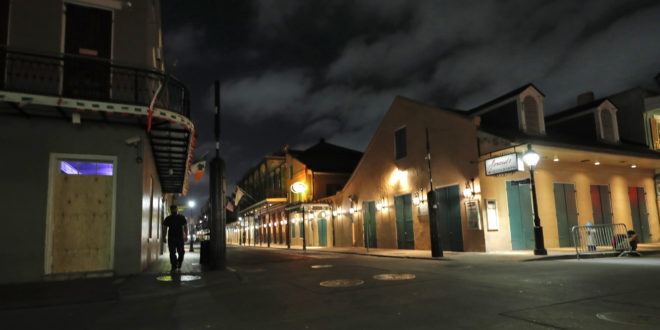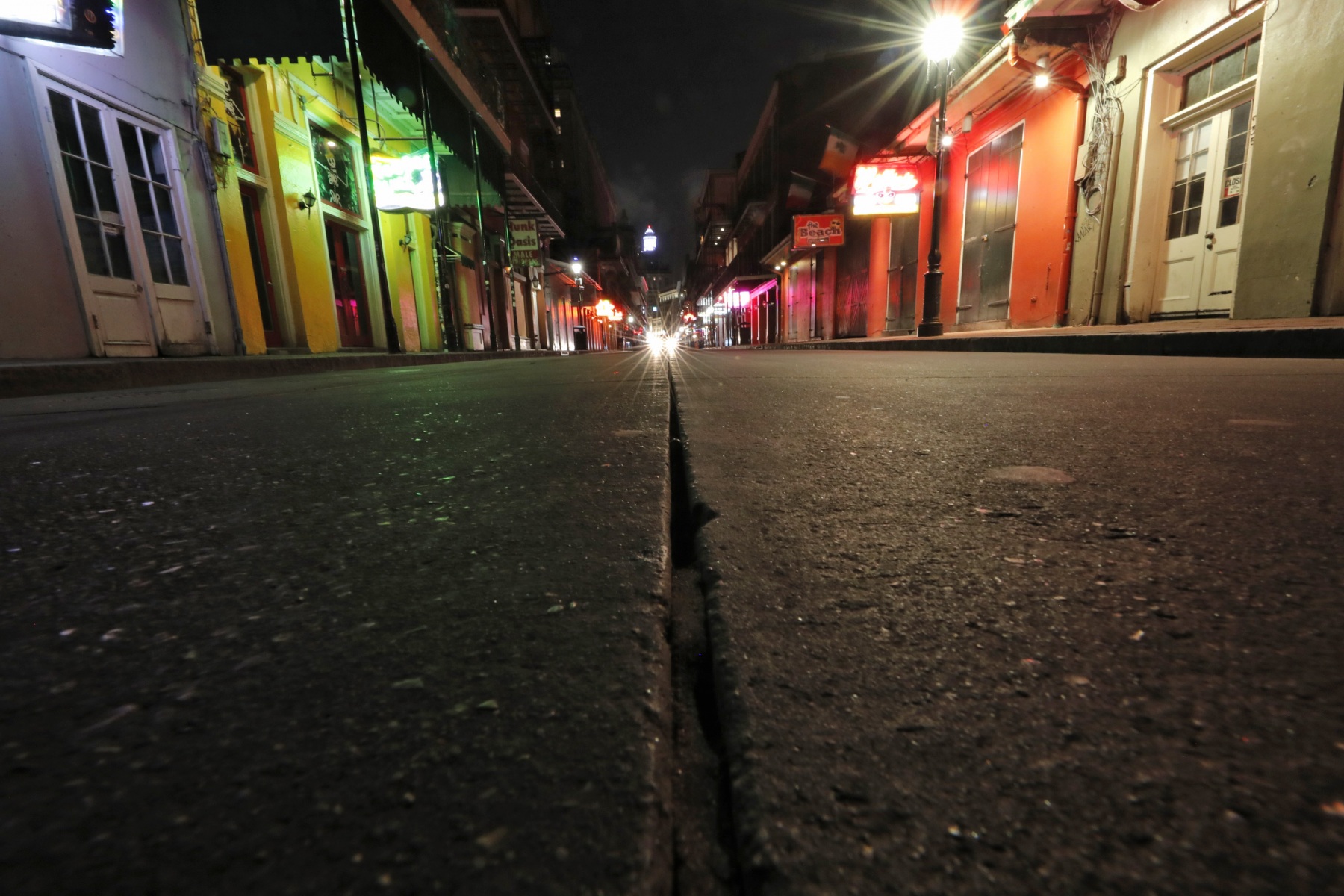By KEVIN McGILL Associated Press
NEW ORLEANS (AP) — A week ago, revelers jammed bars in the French Quarter and New Orleans’ Irish Channel neighborhood ahead of St. Patrick’s Day while hotels, taverns and restaurants looked ahead to what is usually a lucrative festival season.
Now, the party is suddenly and decisively over. Coronavirus dread has settled uncomfortably over this most social of cities, where public gatherings are banned and 15 of Louisiana’s 20 COVID-19 deaths had been recorded as of Saturday.
While Gov. John Bel Edwards openly worries that the state’s ability to deliver health care could be overwhelmed in another week, the metro area has become one of the nation’s hot spots for the virus, home to the vast majority of the more than 760 infected statewide.
Two new testing centers for the disease closed within hours of opening Friday, having run through the day’s first allocations of tests.
“Laissez les bon temps rouler” (“Let the good times roll”) has given way to a new municipal maxim: “Wash your hands.” The New Orleans Jazz and Heritage Festival is postponed until fall. Other events are canceled. Bars are closed.
Restaurants — the ones that stay open — struggle with takeout- or delivery-only operations.
US Virus Outbreak Changing New Orleans
FILE - In this Thursday, March 19, 2020, file photo, a view of the nearly deserted scene on Bourbon Street, which is normally bustling with tourists and revelers, in the French Quarter of New Orleans. In the city here, the old saying “Let the good times roll” has given way to a new municipal maxim: “Wash your hands.” Due to the coronavirus outbreak, New Orleans has joined those places shutting down bars, eliminating restaurant dining and banning crowds. (AP Photo/Gerald Herbert, File)
“It really came to a screeching halt,” Philip Moseley said of business at Blue Oak BBQ, which he co-owns with Ronnie Evans. They have added phone lines to handle takeout business, but have laid off about half of their roughly 50 staffers.
Celebrated hometown chef and restaurateur Frank Brigsten told his Facebook followers Friday that, for now, he was shutting down the restaurant that bears his name in New Orleans’ Carrollton neighborhood.
Tourists are still around, said Evangeline Turner, who went to pick up a last paycheck this week on Bourbon Street.
“A tourist asked me where they should go,” she said. “I told them everything’s closed.”
Turner has now lost both her jobs — bartending at a restaurant in New Orleans’ Mid City neighborhood, and acting as a “master of ceremonies” at a Bourbon Street bar.
“I worked two jobs because I had to,” said Turner, who is wondering how she’ll pay the rent and buy the insulin she needs to deal with her diabetes.
Turner noted a certain irony. She said Bourbon Street hospitality workers think a source of the city’s infections might be one of the vital tourism industry’s biggest draws, the citywide pre-Lenten Carnival celebrations that culminated on Mardi Gras, or Fat Tuesday, which fell on Feb. 25. Tourists from around the country and the world filled the streets. “There’s no way that can’t be a reason,” she said.
Whether Mardi Gras crowds were a factor in the disease’s spread in Louisiana cannot be proven, but the celebration would be a likely breeding ground for a highly contagious virus like the one that causes COVID-19, said Dr. Richard Oberhelman. He is the chairman of the Department of Global Community Health and Behavioral Sciences at Tulane University’s School of Public Health and Tropical Medicine.
“People are really packed close together, especially for some of the big parades in the downtown section and really all along the route. There are a lot of opportunities for close contact and transmission,” Oberhelman said.
“During Mardi Gras, people were not thinking about social distancing or hand washing,” Oberhelman added.
The vast majority of people recover within weeks after catching the virus, and for most people, it causes only mild or moderate symptoms, such as fever and cough. But for older adults and people with existing health problems, it can cause severe illness requiring hospitalization. Five of those who have died in New Orleans lived at an upscale retirement home.
Restaurateurs aren’t giving up. Six restaurants have joined to promote a “curbside fish fry” at their locations across the city, offering seafood-focused meals curbside and to go every Friday during Lent. Some of the money raised in the project, organized by local seafood supplier Craig Borges, will go to the Louisiana Hospitality Foundation, which helps people who work in the industry.
And the Louisiana Restaurant Association, working with local marketing and public relations companies, has launched a website connecting restaurants with customers seeking takeout or delivered food.
Moseley’s restaurant planned to do its part Saturday with a drive-thru service where hospitality workers can get a pork sandwich, beer and chips for free.
“It’s pretty stressful,” Moseley said of losing his staff. “You feel for everyone on your team and you spend so much time with these people. I talk to these people more than I talk to my wife
“We’re all in it together, all trying to figure out the puzzle: How can we succeed in this?”
Associated Press reporter Rebecca Santana in New Orleans contributed to this report.
The Associated Press receives support for health and science coverage from the Howard Hughes Medical Institute’s Department of Science Education. The AP is solely responsible for all content.
Follow AP coverage of the virus outbreak at https://apnews.com/VirusOutbreak and https://apnews.com/UnderstandingtheOutbreak.
 Mocs News Reporting the news that matters most to UTC
Mocs News Reporting the news that matters most to UTC





